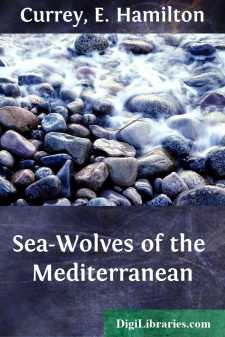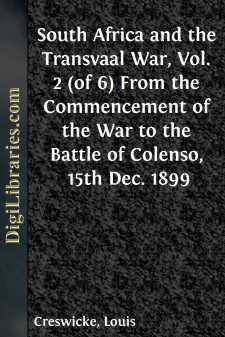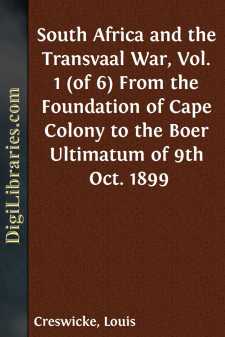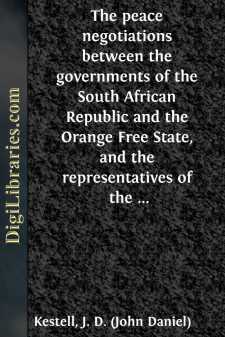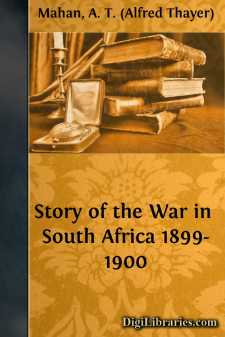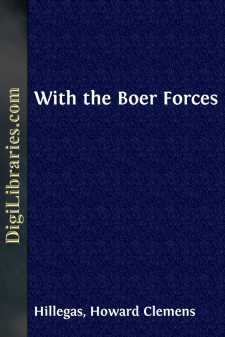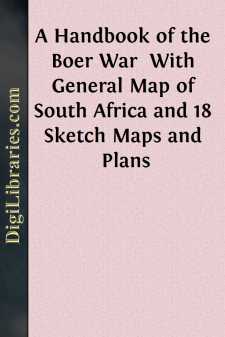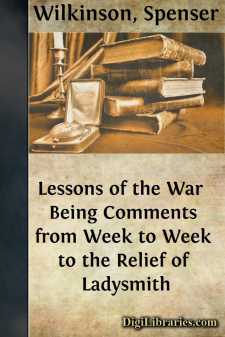History
- Africa
- Americas (North Central South West Indies) 50
- Ancient 68
- Asia 58
- Australia & New Zealand 8
- Canada 41
- Caribbean & West Indies 1
- Civilization 20
- Eastern Europe 12
- Europe 310
- Expeditions & Discoveries 60
- General 77
- Historical Geography 1
- Jewish 9
- Latin America 3
- Medieval 8
- Middle East 13
- Military 248
- Revolutionary 8
- Study & Teaching 5
- United States 353
- Western Europe 56
- World 13
Africa Books
Sort by:
CHAPTER I Outbreak of the war—The Transport Service and despatch of Army Corps from Southampton—Departure of a Naval Brigade from England and landing at Capetown and Durban—I join H.M.S. Philomel. During a short leave of absence in Scotland, after my return from Flag-Lieutenant's service in India with Rear-Admiral Archibald L. Douglas, that very kind friend, now Lord of the Admiralty,...
more...
INTRODUCTORY In all the ages of which we have any record there have been men who gained a living by that practice of robbery on the high seas which we know by the name of Piracy. Perhaps the pirates best known to the English-speaking world are the buccaneers of the Spanish Main, who flourished exceedingly in the seventeenth century, and of whom many chronicles exist: principally owing to the labours of...
more...
by:
Louis Creswicke
CHRONOLOGICAL TABLE—Vol. II. OCTOBER. 11.—Boer Ultimatum time-limit expired. Great Britain commenced to be at war with Transvaal and Orange Free State. 12.—Text of Great Britain's reply to Boer Ultimatum issued. It stated that the conditions demanded were such as her Majesty's Government deemed it impossible to discuss. Mr. Conyngham Greene recalled. Armoured train captured by Boers...
more...
by:
Louis Creswicke
INTRODUCTION The Transvaal War—like a gigantic picture—cannot be considered at close quarters. To fully appreciate the situation, and all that it embraces, the critic must stand at a suitable distance. He must gaze not merely with the eye of to-day, or even of the whole nineteenth century, but with his mind educated to the strange conditions of earlier civilisation. For in these conditions will be...
more...
PREFACE The want has been repeatedly expressed of an official publication of the Minutes of the Negotiations which led to the Peace concluded at Vereeniging on May 31, 1902, events which have hitherto been a closed page in the history of the Boer War. As the Republics had ceased to exist, the question arose: Who could publish such Minutes? It is true that some very incomplete Minutes appeared in...
more...
I. APOLOGY FOR "YET ANOTHER BOOK" ON THE SOUTH AFRICAN QUESTION. FUTURE PEACE MUST BE BASED ON JUSTICE,—TO COLOURED AS WELL AS WHITE MEN. DIFFERENCE BETWEEN LEGALIZED SLAVERY AND THE SUBJECTION OF NATIVES BY INDIVIDUALS. THE TRANSVAAL IN 1877: ITS BANKRUPTCY: ITS ANNEXATION BY GREAT BRITAIN: ITS LIBERATION FROM GREAT BRITAIN IN 1881. CONVENTION OF 1881 SIGNED AT PRETORIA. BRITISH...
more...
THE THEATRE OF THE WAR The war in South Africa has been no exception to the general rule that the origin of current events is to be sought in the history of the past, and their present course to be understood by an appreciation of existing conditions, which decisively control it. This is especially true of the matter here before us; because the southern extreme of Africa, like to that of the American...
more...
CHAPTER I Immediately after war was declared between Great Britain and the Boers of the Transvaal and the Orange Free State, the two South African republics became ostracised, in a great measure, from the rest of the civilised world. The cables and the great ocean steamship lines, which connected South Africa with Europe and America, were owned by British companies, and naturally they were employed by...
more...
by:
Unknown
I. THE ROUNDHEADS OF SOUTH AFRICA History often reproduces without reference to nationality some particular human type or class which becomes active and predominant for a time, and fades away when its task is finished. It is, however, not utterly lost, for the germ of it lies dormant yet ready to re-appear when the exigencies of the moment recall it. The reserve forces of human nature are inexhaustible...
more...
THE EVE OF WAR The next six weeks will be an anxious time for the British Empire. The war which begins as I write between three and four on Wednesday afternoon, October 11th, 1899, is a conflict for supremacy in South Africa between the Boer States, their aiders and abettors, and the British Empire. In point of resources the British Empire is so incomparably stronger than the Boer States that there...
more...



